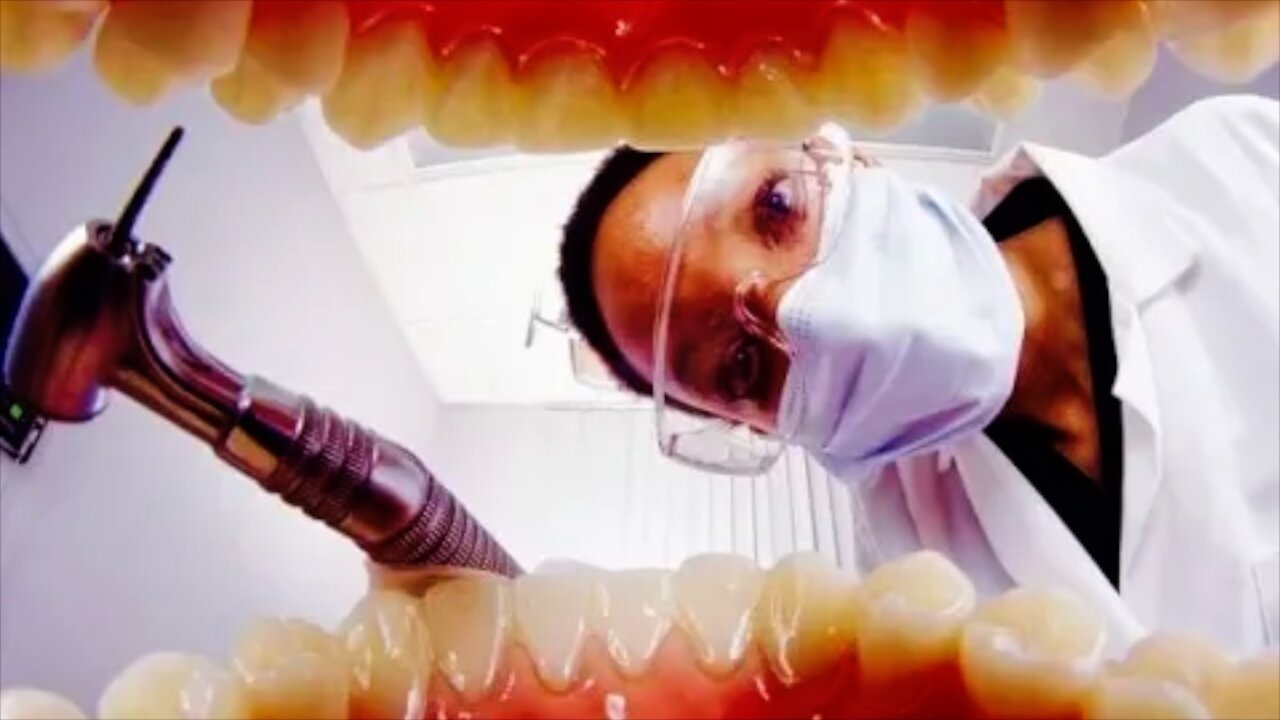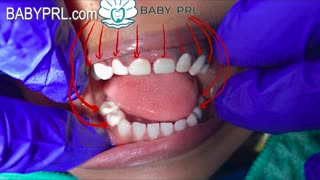Premium Only Content

New Drug Regenerates & Regrows Teeth! - Heals Cavities - No More Drill
Drug helps rotten teeth regrow, trial shows. Need for fillings could be reduced in future as study reveals natural ability of teeth to repair themselves can be enhanced using Alzheimer’s drug. Dentists have devised a treatment to regenerate rotten teeth that could substantially reduce the need for fillings in the future. The therapy works by enhancing the natural ability of teeth to repair themselves through the activation of stem cells in the soft pulp at the center.
Normally, this mechanism is limited to repairing small cracks and holes in dentine, the solid bulk of the tooth beneath the surface enamel. Now scientists have shown that the natural process can be enhanced using an Alzheimer’s drug, allowing the tooth’s own cells to rebuild cavities extending from the surface to the root.
Prof Paul Sharpe, who led the work at King’s College London, said: “Almost everyone on the planet has tooth decay at some time – it’s a massive volume of people being treated. We’ve deliberately tried to make something really simple, really quick and really cheap.”
In the trial, in mice, the team showed that when defects were filled with a biodegradable sponge soaked in the drug, the tooth was gradually able to rebuild itself.
Restoring the tooth’s original dentine structure is preferable because dental cements used in conventional fillings weaken the tooth, leave it prone to future infections – and inevitably erode or detach.
In the case of large cavities, the tooth may eventually need to be extracted after undergoing multiple treatments. The new method, which would encourage natural tooth repair, has the potential to eliminate these issues, according to the scientists.
“The tooth is not just a lump of mineral, it’s got its own physiology. You’re replacing a living tissue with an inert cement,” said Sharpe. “Fillings work fine, but if the tooth can repair itself, surely [that’s] the best way. You’re restoring all the vitality of the tooth.”
The new treatment would not eliminate the need for the dentist’s drill, however, since decaying sections of the tooth would still need to be removed. “Sorry, you’re still going to have the drill, you can’t get away from that, I’m afraid,” said Sharpe.
The therapy relies on a drug called tideglusib, which has been assessed as a potential Alzheimer’s treatment, and which is known to be safe for clinical use.
Previous work by the team has shown that the drug stimulates stem cells in the centre of the tooth, triggering them to develop into odontoblasts (specialized tooth cells) and boosting the production of dentine, allowing larger defects to be reversed. “We get more of the cells, much quicker and they are more active,” said Sharpe.
In the study, published in Scientific Reports, the scientists drilled holes into the teeth of mice, inserted a biodegradable collagen sponge soaked in the drug and sealed the tooth with a dental adhesive.
A quarter of five-year-olds in England have tooth decay, data shows.
When the teeth were examined several weeks later, the sponge had degraded and been replaced with new dentine. Collagen sponges are commercially available and clinically-approved. The dental preparation of the tooth would be almost identical to that required for conventional fillings, according to the scientists.
A remaining question is whether the method will scale up successfully to human teeth, in which cavities can be significantly larger. The team are currently testing the technique in rats, whose teeth are about four times larger than those of mice, and if this is successful plan to apply later this year to carry out the first clinical trials in patients.
Ben Scheven, an oral cell biologist at the University of Birmingham, said that preserving the live tooth tissue was increasingly viewed as a priority. “Dentistry is not only about filling and drilling but also about keeping the teeth healthy,” he said. “Especially since it’s an accessible and cheap treatment I can imagine this being used in the clinic.”
Winnie Wong, a dentist based in Hertfordshire, said: “Clinically speaking, the best material is always natural tooth structure, so I’m sure this method will be encouraged by most dentists.”
Wong added that the therapy could “cut down on trauma caused by dentists who are slightly overzealous in their caries removal”. “I think it would be welcomed among patients, as no one likes going to the dentist to have fillings and injections, no matter how nice we are!” she said.
Music: The Inventor by Dhruva Aliman
Amazon - https://amzn.to/3eyYxeD
https://music.apple.com/us/artist/dhruva-aliman/363563637
https://dhruvaaliman.bandcamp.com/album/king-neptunes-travelling-merchants-and-their-adventures-in-and-beyond-the-sea
http://www.dhruvaaliman.com/
Spotify - https://open.spotify.com/artist/5XiFCr9iBKE6Cupltgnlet
-
 1:00
1:00
babyprltx
3 years agoAlternatives To Silver Crowns For Baby Teeth Cavities
41 -
 3:36
3:36
Calan
2 years agoMore bow drill fun
52 -
 3:38
3:38
KMGH
2 years agoWhiter Teeth // Love Your Teeth
51 -
 LIVE
LIVE
Delnorin Games
11 hours ago🔴 Live - Star Citizen
1,912 watching -
 1:39:44
1:39:44
HELMET FIRE
12 hours agoDEADROP IS BACK!
137K8 -
 10:03
10:03
Tundra Tactical
14 hours ago $14.84 earnedBrandon Herrera Vies Bid for ATF Director!
87.7K15 -
 22:01
22:01
DeVory Darkins
1 day ago $35.30 earnedHakeem Jeffries SHUTS DOWN The View as Matt Gaetz Speaks out
77.1K127 -
 2:02:54
2:02:54
Mally_Mouse
13 hours agoLet's Play!! - Spicy Saturday
57.2K2 -
 1:33:06
1:33:06
Slightly Offensive
14 hours ago $29.98 earnedAre You Ready for What's Coming Next? | Just Chatting Chill Stream
74.5K41 -
 32:10
32:10
MYLUNCHBREAK CHANNEL PAGE
1 day agoThe Gate of All Nations
146K63